
Postnatal Retreats Are Getting Popular in the U.S.—Here’s a Look at Two in California
Postpartum massages and facials, curated dining menus, and a 24/7 nursery are just a few of the perks.

Ahma & Co
As a mom of a 6-month-old, I know all too well that postpartum care is essential—but it’s historically been a more taboo subject. Fortunately, there’s a wave of postnatal retreats opening up across the country to provide moms, partners, and their babies with a little extra TLC. These types of retreats have long been popular and common in Asia, particularly in South Korea, and now they are making their way stateside. In California, there are two new centers that aim to give attendees the confidence and resources (and sleep!) they need to take on their new role as parents.
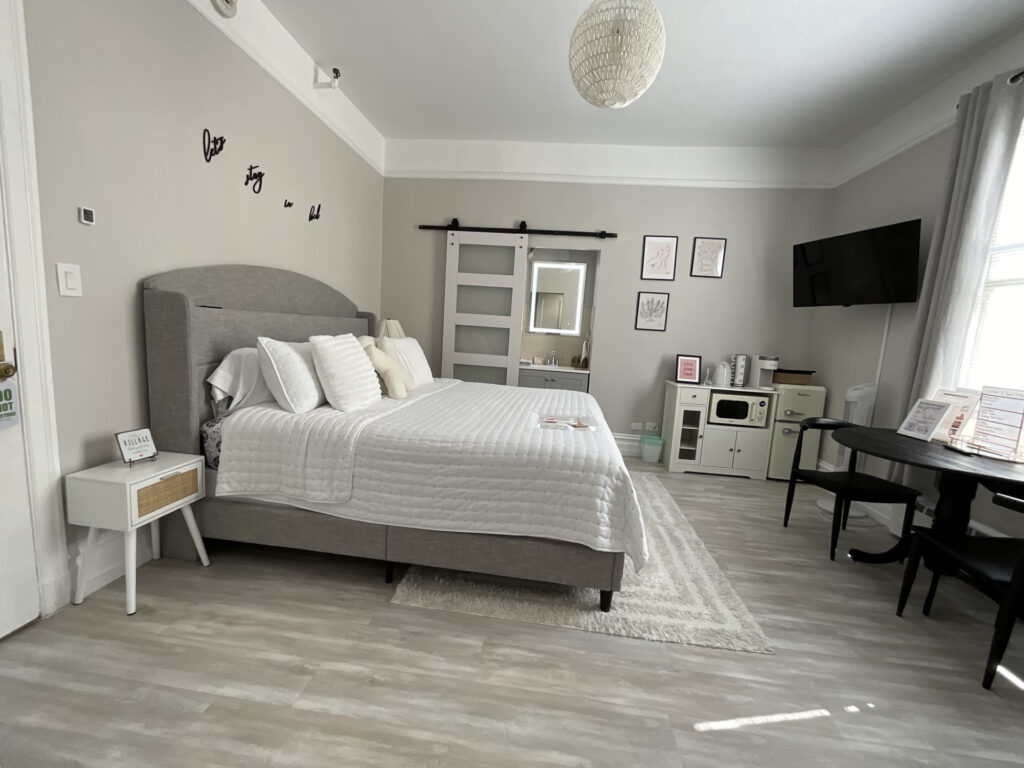
The Village Postnatal Retreat Center
The Village Postnatal Retreat Center, located in San Francisco, was originally set to open in 2020—until the pandemic hit. Owner and founder Jennifer Darwin has spent the past decade working as a labor and delivery nurse and doula, and she’s always recognized the need for furthering parents’ education during the postpartum period.
“I would discharge patients to go home and they were all just terrified,” Darwin says. “It was really hard because we just didn’t have the resources and the time, plus you’re exhausted because you just gave birth—not the best time to be teaching you things.”
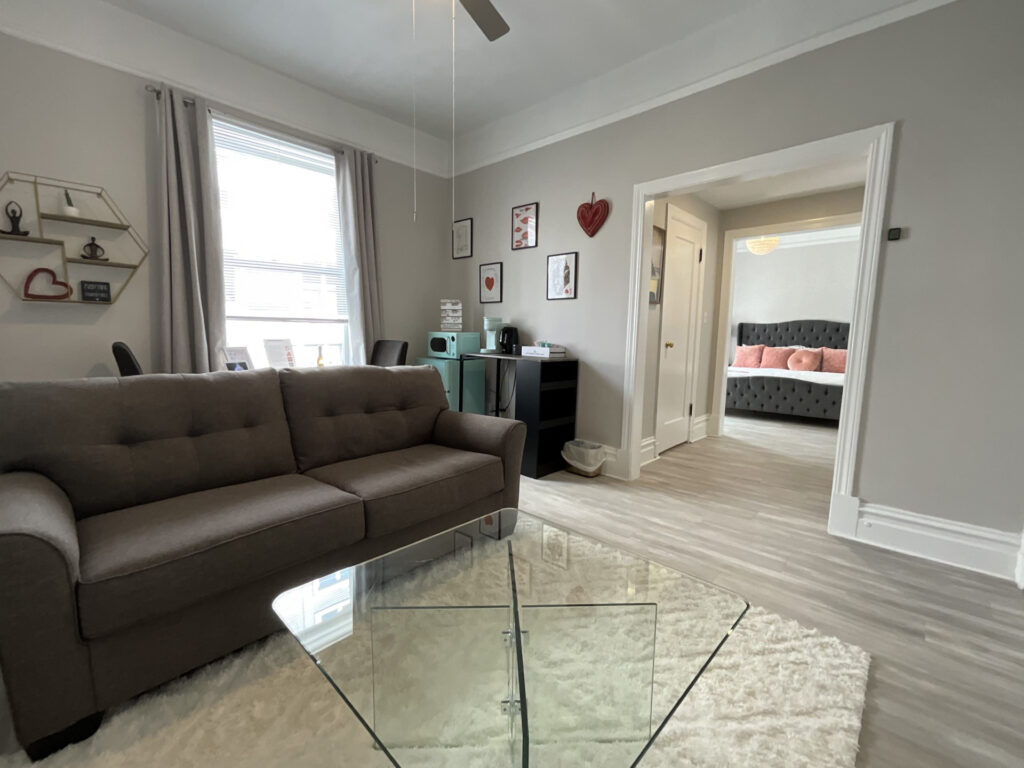
The Village Postnatal Retreat Center
After moving to San Francisco from Dallas 10 years ago, Darwin met people who shared how different cultures emphasized the importance of recovery for postpartum moms. In the U.K., for instance, home visits are more common for new parents.
“It just seemed like other countries had it figured out, and why didn’t we?” she says.
In July 2023, Darwin welcomed the first guests at the Fairmont San Francisco, but she’s since relocated the Village Postnatal Retreat Center to a private residential hotel. All of the rooms are outfitted with rocking chairs, heated bidet toilet seats, walk-in showers with dual shower heads and handrails, and blackout curtains. Darwin even installed LED lights under the beds, so you can safely make your way to the bathroom without waking your partner or baby in the middle of the night.
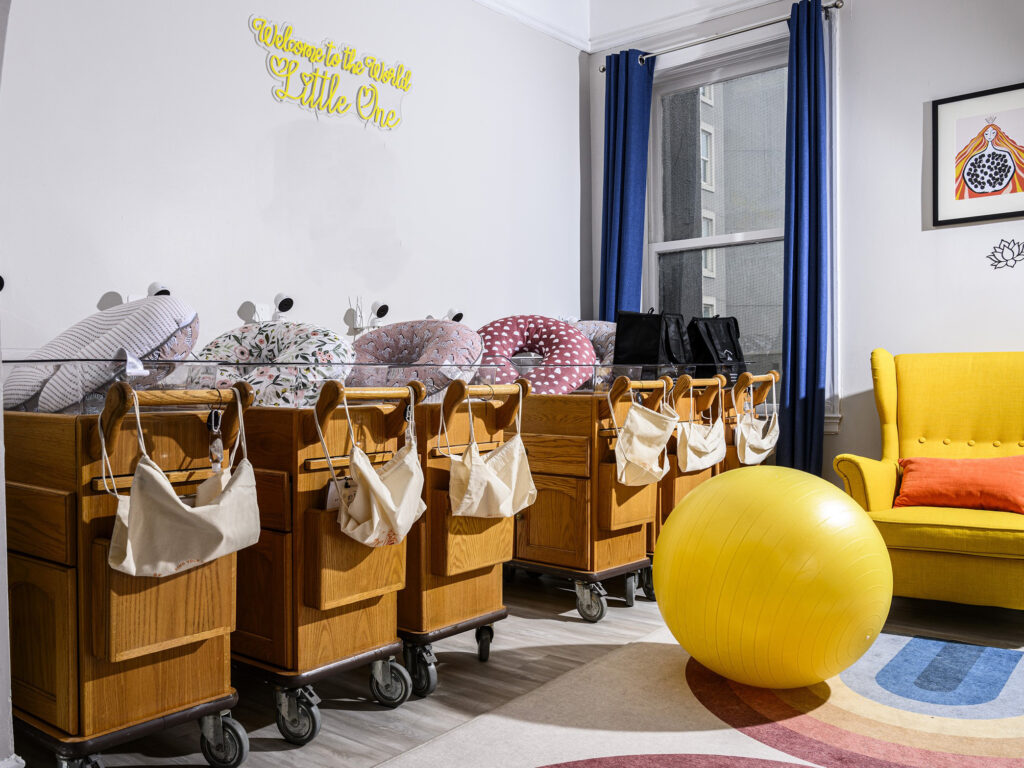
The Village Postnatal Retreat Center
Most guests arrive within the first week of parenthood and stay for five or six nights. That first day, Darwin makes a point to connect parents with a board-certified lactation consultant. The nursery is also available 24 hours per day, so you can have doulas taking care of your baby while you catch some uninterrupted Zzzs. There’s also a new parent group, led by a family therapist, to talk about the emotional journey of bringing home your baby.
The educational portion of the retreat walks parents through courses with topics including infant CPR and safety, babywearing, tummy time, and bathtime. For moms’ self-care, there are also masseuses and estheticians available for postnatal massages and facials, and menus with recommended meals—and some indulgences, too.
“We created a postpartum healthy meal plan, but you know what, if you want a burger, go for it,” Darwin says.
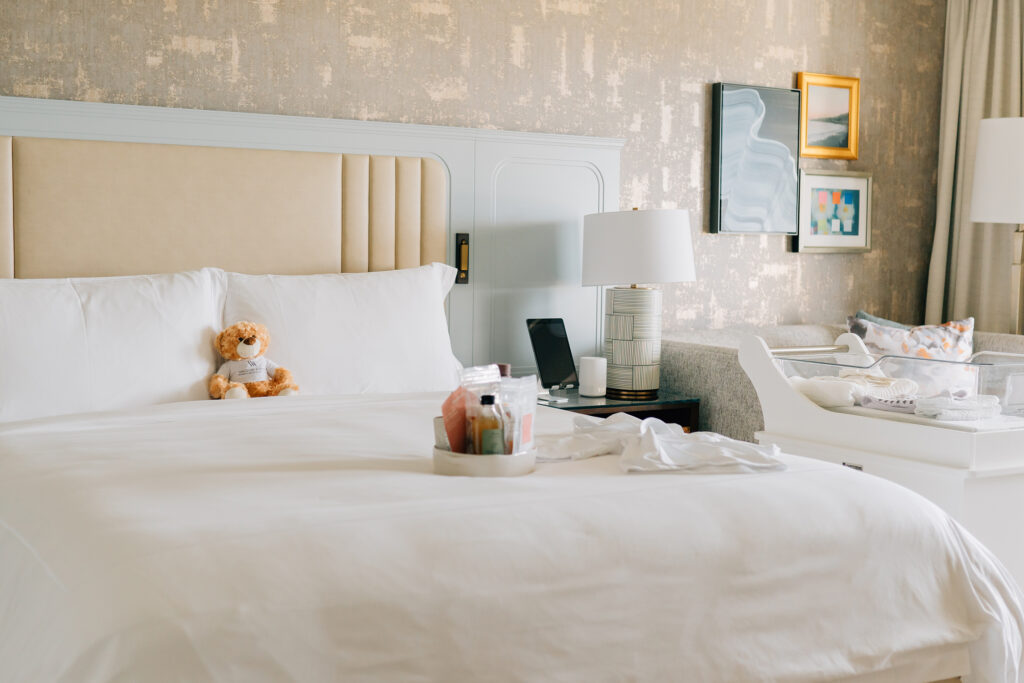
Ahma & Co
The trend has been making its way down the coast, too. In March 2024, Ahma & Co CEO Esther Park and COO Christina DeJesus opened the doors to their postnatal retreat at the Waldorf Astoria Monarch Beach in Dana Point, California.
“I grew up in South Korea, where postpartum care is a cherished tradition and a recognized rite of passage for every mother, and 80 percent of mothers utilize some form of postpartum care,” says Park, who previously worked in the luxury consumer industry. “Everyone talks about pregnancy, and the birth, but no one really talks about what happens after because all of the attention immediately shifts to the baby.”
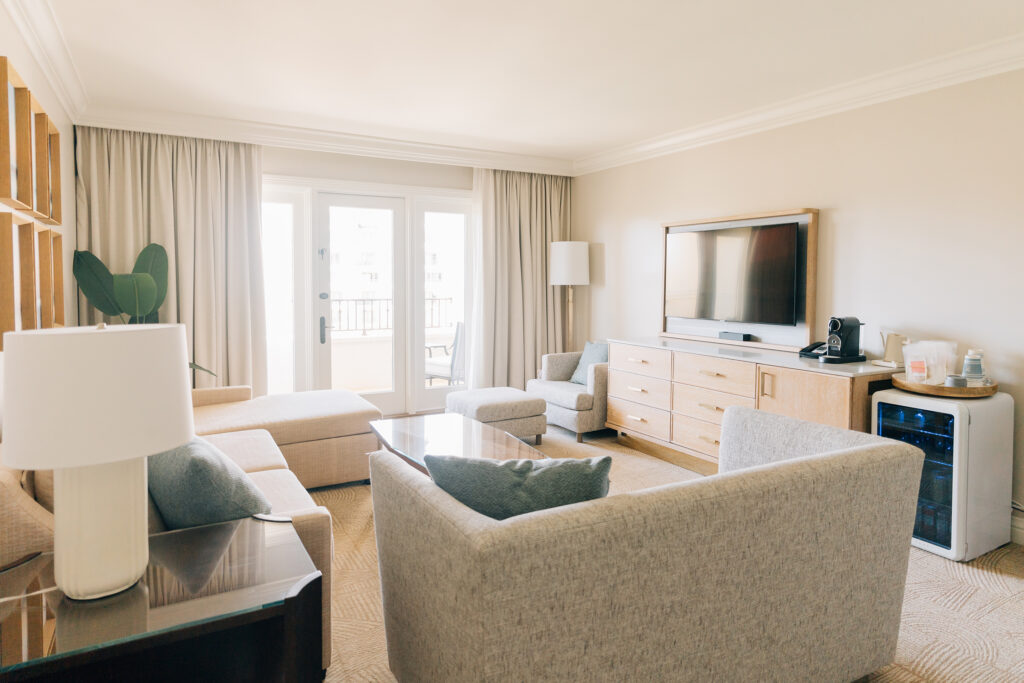
Ahma & Co
Ahma & Co’s journey with new parents begins around the first trimester, when most reach out about the retreat.
“We’ve been able to become their maternal care concierge,” Park says, adding that they help build out baby registries, offer discount codes on popular products, and even coordinate birth plans.
When it’s time to check in, parents have typically just left the hospital and spend anywhere from seven to 12 days at the retreat, on average. To take the guesswork out of planning their experience, everything is included in the base package. These benefits consist of 24/7 expert care from doulas, assistance from newborn care specialists and lactation educators, massages, holistic pain relief services like sitz baths and foot soaks, and access to a parents’ lounge and baby lounge.
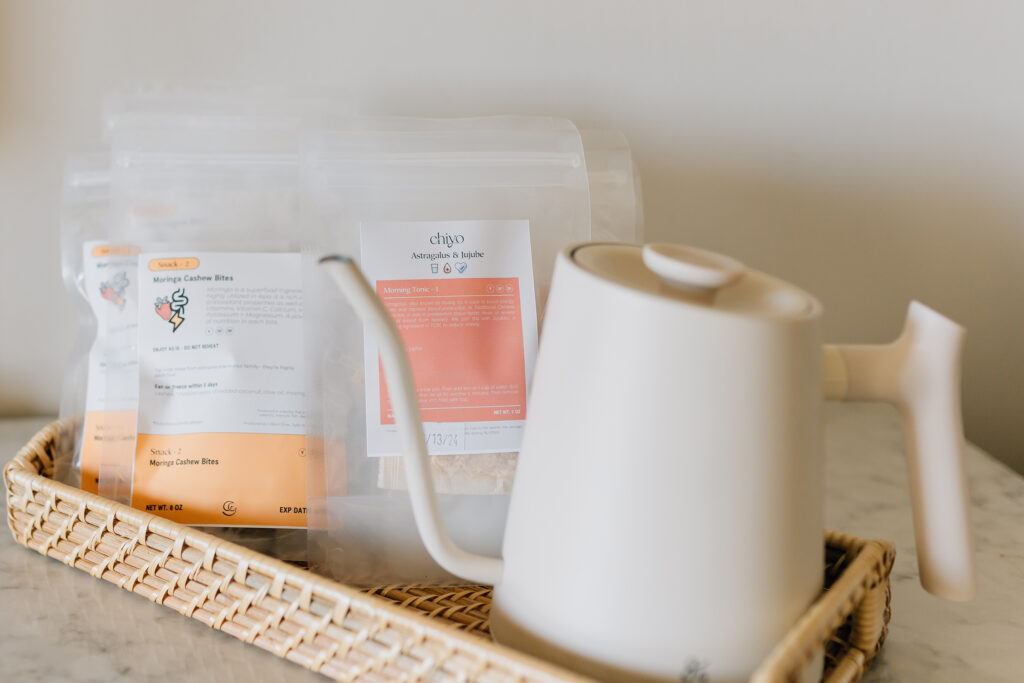
Ahma & Co
“For us, our priority was to include everything in one package so that they don’t have to think through what they want and what they don’t want, and it removes that mental load to identify, curate, and execute their own care package,” Park says. “So we try to make this process as seamless and easy as possible for all of our clients.”
DeJesus, a registered and family nurse practitioner, says a lot of Ahma & Co’s processes are rooted in the same kinds of security and infection control that you see in the hospital, with some modifications.
Each room is equipped with baby care and postpartum recovery essentials, and they’ve also developed custom antimicrobial bassinets designed for bedside height. And like the Village Postnatal Retreat Center, you can have your baby taken to the nursery if you want some extra sleep. There are several workshops you can attend as well, including a couple’s connection session to discuss the many changes that happen as you grow your family.
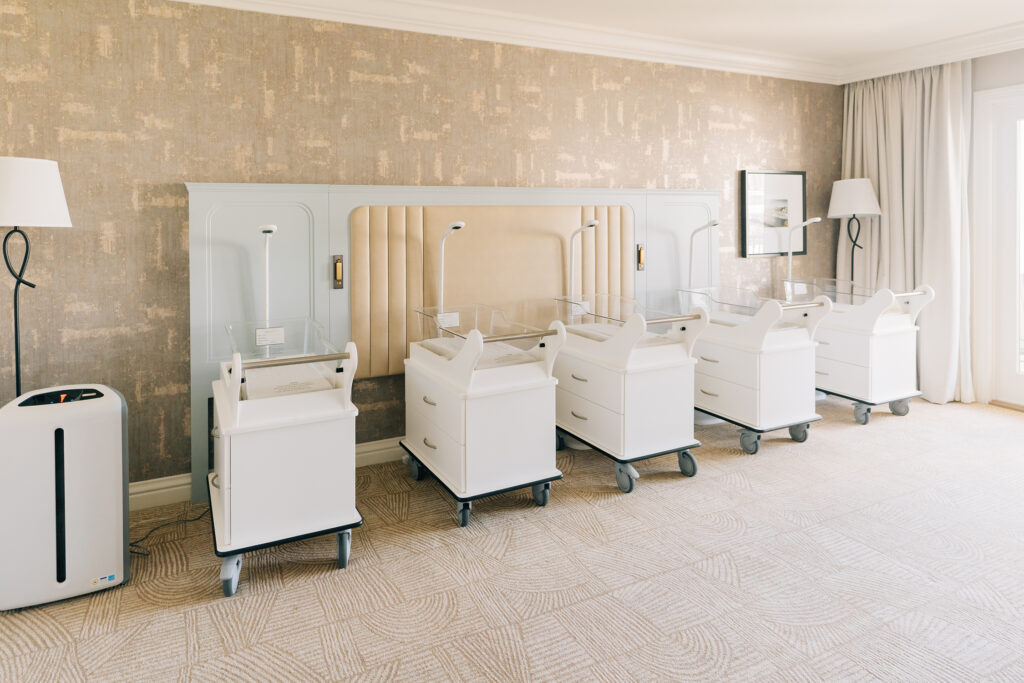
Ahma & Co
Both the Village Postnatal Retreat Center and Ahma & Co work with families to make their experience as affordable as possible. At the end of your stay, they’ll provide detailed invoices to hopefully give insurance companies everything they need to cover some of the cost. Darwin also encourages new parents to sign up for Be Her Village, a site that allows you to create a registry specifically for pregnancy and postpartum care. So, instead of registering for a crib, you can ask friends and family to contribute to your postnatal retreat.
“One thing that I always say to moms is you invest heavily in the different milestones in your life, such as your wedding, so then why wouldn’t you do the same for something as important as transitioning into parenthood?” Park says. “And it’s not just for yourself. It’s also so you and your family can have a strong start with more capacity, with more confidence, [and] with a lot more knowledge.”
Both retreats have seen so much success that past clients are knocking on their doors again after spending a few weeks at home. Even though they’ve established a routine and have fewer questions, they’re looking for one thing: more sleep. Now, just out of curiosity… can parents of 6-month-olds check in, too?
